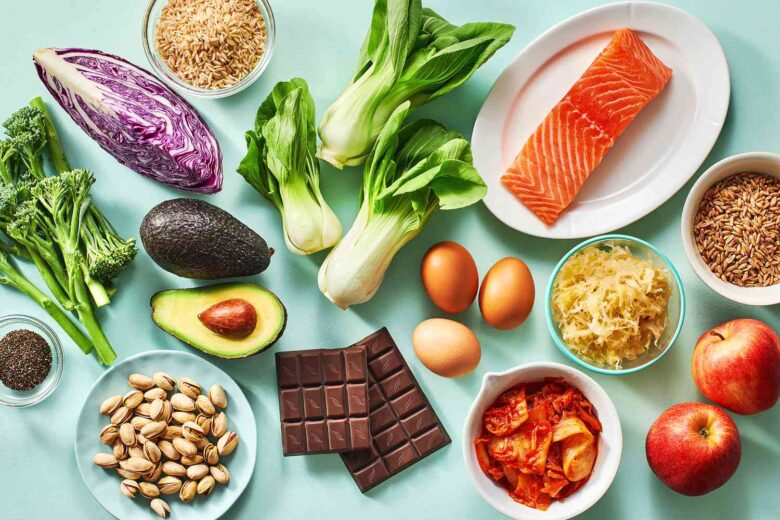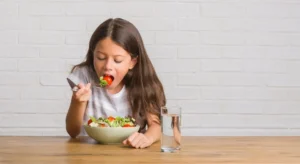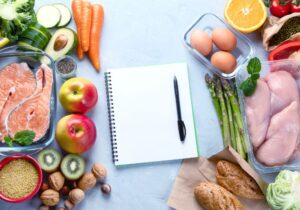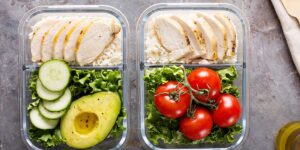The thought of eating a healthy diet to shed weight frequently conjures images of rigid diets, bland meals, and the feeling of hunger. What if you were able to lose those extra pounds without feeling depleted? Dieting healthy or losing fat doesn’t always need to be an ongoing struggle against desires and sacrifices. This blog will provide ways to nourish your body while satisfying your senses and reaching your goals for health without suffering.
Understanding Your Body’s Needs
Before beginning any weight loss program, Understanding your body’s distinct requirements is the initial step. Weight loss is about getting the nutrients your body needs, not just cutting calories. Everyone has a base caloric requirement that is based on their gender and age, as well as their level of activity and general health. This amount of fuel is your body’s energetic base, and eating less than this could result in energy deficiency and nutritional deficits. Instead of solely focusing on reducing your food intake, concentrate on eating better to aid your body’s functions while focusing on weight loss.
Nutrient-Dense Foods
An essential aspect of eating healthy is selecting high-nutrient foods that offer the most nutrients, vitamins, and energy with each bite. These include vegetables, fruits, whole grains, and protein-rich lean foods, along with healthy fats. A colorful salad with fresh greens, roasted chickpeas, avocados, and a mild dressing is not just nutritious; it is also tasty. Switching from processed foods to high-nutrient options will ensure that your body gets the necessary nutrients, without empty calories. This strategy leaves you feeling content and less inclined to indulge too much.
Smart Snacking
It is not uncommon for snacking to get an unpopular reputation, but if done properly, it can be an effective method of sustaining energy levels and stopping eating too much later during the day. A healthy snack is one that includes simple, whole foods, such as a handful of nuts or a cup of Greek yogurt topped with berries or hummus topped with vegetable sticks. Look for snacks that include fiber, protein, and healthy fats to ensure you are full and not overindulging in calories. In this way, snacking is healthy and not an unintentional calorie trap.
The Role of Hydration
Hydration plays a crucial role in healthy eating as well as weight loss. Many times, we think that hunger is thirst and end up eating more than we need to. A water bottle at your desk and drinking throughout the day will keep you hydrated and decrease those random cravings. Also, drinking an ounce of water prior to a meal could help you control portions and improve digestion. Herbal teas and water infused with fruits such as lemons or cucumbers can provide different flavors to your water intake.
Mindful Meal Planning
Making a plan for your meals is an additional essential part of eating healthy. Planning your meals helps you make conscious choices about your food instead of resorting to quick, unhealthy choices. Begin by taking just a few minutes every week to plan your menus, ensuring portions are under control and making sure you include various food categories. This not only saves both time and energy, but it also cuts down on excess calories that come from food cravings. A balanced eating plan makes sure that you are eating mindfully instead of just eating without thinking about it.
Making Healthy Choices While Dining Out
The dining out experience doesn’t need to be a hindrance to your health-conscious eating goals. There are many restaurants that offer balanced meal options and accept requests such as grilling instead of fried food, salad dressings served on an accompanying plate, or smaller portions. Looking through the menu to find recipes that use whole ingredients and little processing can aid you in making informed choices. On occasion, you may enjoy desserts and fried snacks; however, it’s important to share them with your family to ensure reasonable portions. Dining out should be about enjoying the moment without guilt, so you must find the right balance for you.
The Importance of Balanced Meals
Healthy meals that mix proteins, carbohydrates, and fats are essential for keeping you satisfied and feeling energized. For example, eating a bowl of brown rice, chicken that is lean and sauteed with vegetables, and some seeds or nuts is the perfect combination of macros. These meals can help regulate your blood sugar, decrease cravings for food, and prevent excessive eating. Making sure you have balanced plates will ensure that your meals do provide energy to your body and make you feel satisfied after each meal.
Physical Activity and Its Impact
Healthy eating is just one aspect of the equation for weight loss. Physical exercise plays an essential role in maximizing energy balance as well as increasing metabolic rate and improving mental well-being. By incorporating exercises like exercising, walking, and yoga, you can create a great complement to your good eating routine, generating a synergistic effect. It doesn’t need to be intense gym sessions. In fact, taking a 30-minute walk every day will make a huge change in your weight loss efforts. Find activities that you enjoy and ensure that your body’s movement becomes an option for a healthy lifestyle instead of something you dread.
Building a Lifestyle, Not a Diet
The key to eating healthily and losing excess weight is to think of it as a way of life, not an effortless fix or a rigid program. Instead of depriving yourself of sweets, try to do it in moderation. You can indulge occasionally and listen to your body’s signals. Being consistent and making small, lasting changes can result in long-term benefits. Recognize your progress, and remember that eating healthily does not mean feeling deficient but instead feeling empowered by your choices.
FAQs
1. What are some foods I should stay clear of to reduce the weight?
Avoid processed foods as well as drinks that are sugary and foods that are high in sugars, unhealthy fats, or added sugars. Choose whole and minimally processed options.
2. How can I deal with cravings without compromising my healthy eating and fitness goals?
Make smart choices to satisfy your cravings, like dark chocolate as an alternative to candy bars, or popcorn in place of chips. Drink water to ensure that you’re not mistaking hunger for thirst.
3. Does it really matter to keep track of every calorie?
Not necessarily. Make sure you eat nutrient-rich whole foods that you can eat in moderation, and be aware of your body’s signals for hunger rather than relying solely on calorie count.
4. When should I train to support healthy eating?
Try to get 150 minutes of moderate-intensity exercise per week. You can also split it into 30-minute sessions five days per week. Find a sport you love and make it a habit.
5. Do I eat a lot of carbohydrates and still shed the weight?
Yes! Carbohydrates are a vital food source for energy. Consider complex carbohydrates such as beans, whole-grain cereals, and fruits instead of refined carbs.




